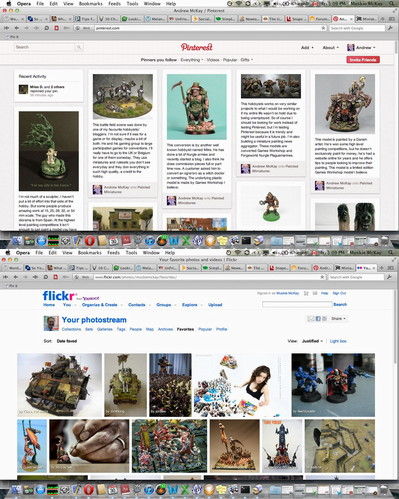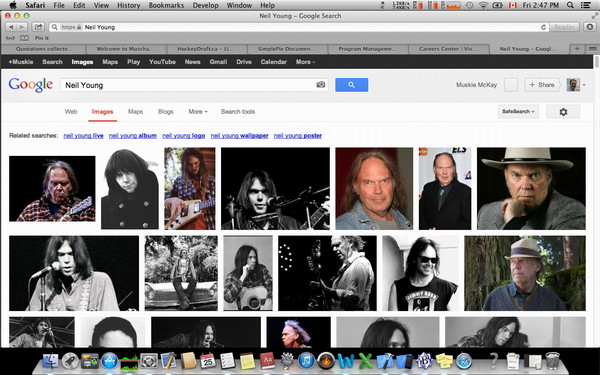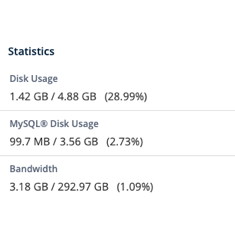Image Copyright
March 30th, 2012
First of all, I’m not a lawyer. I did study copyright law as part of my MBA, I even studied copyright law in China. Generally when people talk copyright laws online they are talking American copyright laws. There are some international intellectual property law treaties, but a few American corporations have had a large influence on copyright laws, cough, Disney, cough.
Lately I’ve done a lot of reading, some blogging, plus I finally joined Pinterest, all of which got me thinking more about who owns the rights to an image? Generally speaking the person who took the photograph owns the rights to it as “art”.
Does this apply to screen shots?

It is possible take a screen shot and crop it so closely that it is identical to the original photo, almost a bit for bit perfect copy. Is a screen shot a photograph, is it original art? Probably not, the reason being in television and film if you take a still of the moving image, I believe the copyright remains with the original creator of the moving image. When you buy a film poster it always says image copyright 20th Century Fox or whomever. In television broadcasts there is always writing at the end saying who owns the video footage. This was part of the DMCA case involving Micheal Crook, where a still image from I believe a Fox TV broadcast was at the heart of the matter. Making a copy of an image and reposting it is how Pinterest and a number of other social sharing websites like Tumblr work.
I recently read an article which made the distinction between law as written and law as practiced. Generally speaking when someone posts or reposts an image online they are not challenging the copyright or intellectual property rights for the image. In the US the Digital Millennium Copyright Act provides an avenue to get copyrighted material taken down quickly by contacting the web host rather than the individual who posted the image. But what if your web host isn’t in the US? Given the litigious nature of some Americans and ever changing laws, even some Americans wonder if they wouldn’t be better off having their website hosted outside the USA.
After so many years online I had to submit DMCA requests after many people claimed copyright for Microsoft Excel files I created.
Reposting an Image
My web host is located in the US, though I am not American. Many, many web servers are located in the US that host images posted by people who may not hold the copyright for the image and who may not even be American citizens. Even using the mechanism provided by the DMCA it is generally not worthwhile going after every individual who violates copyright law. Given that it is not always easy to prove financial damages were incurred and in many cases wider exposure and incoming links and traffic benefits a website/copyright holder, most people don’t think twice about reposting an image to Facebook or Pinterest.
Just to be on the safe side, companies like Pinterest are altering their usage agreement to make it clear that the end user is legally responsible in ensuring they have the right to post an image. Pinterest’s rapid growth hasn’t been applauded and embraced by all. Flickr in particular seems to be a little choked up. That was by far the largest website I’ve come across, that forbade ‘pinning’ of images, which is a bit odd considering they are an image sharing website. Flickr was built to share images you took yourself, for which you hold the copyright. Pinterest was built to share images you likely found online, for which you in all likelihood don’t hold the copyright. Will more websites opt out of pinning?
Eventually Flickr allowed pinning of images whereas Instagram makes it extremely difficult to pin images. As a result I have posted far more images and pinned far more images from Flickr than from Instagram but influencers and marketers appear to prefer Instagram over Facebook by a wide margin.
I also noticed my Flickr favourites page looks a lot like Pinterest.com. I even took a couple screen shots to show the similarity. I’m a bit too long-winded and paranoid for Pinterest but I keep exploring tools as I build and tweak my miniature painting news aggregator.
Google Adapts to include DMCA Complaints
Google has altered their algorithm to include DMCA violations, some people think it is a step in the right direction, others think a corporation shouldn’t be policing the Internet, regardless people rip off other people all the time on the Internet and the younger they are, the less they are concerned about it.
Google is always changing and they and other Internet giants are under increasing pressure from the US and European governments as their efforts at self policing have been deemed insufficient. Google’s changes also affect marketers and SEO gurus.

Image Copyright Law is Underseige
An interesting legal case is going on right now in the US concerning image copyright. Basically someone posted photos to Twitter using TwitPic and then those photos ended up on various news image services and in newspapers and other commercial media outlets all over the world. The pictures were of a natural disaster in Haiti. The case is still unfolding, the photographer and rights holder had hoped for a million dollar payday but although the judge seems to be finding in his favour the settlement will likely be a more modest but still significant sum. Regardless legal precedent seems to have been set about taking photos off Twitter and then selling them.
Joseph Baio, Morel’s lawyer, told Reuters today that the case showed commercial news use of Twitter photos is illegal, and the trial will determine what the consequences should be.
Even Tweets are now Copyright
Here is another strange tale concerning Internet copyright. In this case it isn’t images but Tweets. You own what you tweet, you are legally responsible for what you say, but it is a public forum, people can quote you. Like Michael Crook before them, I’d never heard of Teri Buhl until she started threatening to sue the Twitterverse, but if your online words and actions remind people of Michael Crook you’re doing the Internet wrong.
If you have thoughts on Image Copyright or how not to behave online you can leave a comment below.
This entry was originaly posted on , it was last edited on and is filed under: Technology and tagged: Copyright, Michael Crook, Social Media.





As someone who is interested in the business of photography I did some research into copyright in regards to model releases. To use an image of a person in any manner other than editorial (i.e. a news story) you have to have a signed release. It is the responsibility of the publisher to make sure this happens, not the photographer. I could lie to an art magazine about having a release for an image and if there’s a problem it is the art magazine left holding the bag. Now, there are variations and exceptions and reasonable expectations of privacy but it makes me wonder if Pinterest’s declaration that they have no liability for the images on their site would hold up if challenged in court.
Personally, I made the decision to no longer use images without consent on my page unless they specifically fall under editorial use. For example, I wrote an article in which I looked at the pros and cons of Infinity, a miniature wargame. It was not a traditional review but I could probably have argued it as such. However, I wrote the publisher, Corvus Belli, and asked for images to use on my site and they sent me a package to use. I got some great art without any worries.
Well as someone who has posted some dubious images I found online on this very blog… I always try to credit the copyright holder or the model or the website which I found it. People post so much to Facebook and now Pinterest, they usually don’t think twice. Pinterest has specifically stated in their user agreement that blame/responsibility is the end users alone to ensure they don’t violate copyright law. But as you say, it could end up in the courts eventually. Tumblr is supposedly much worse for copyrighted material, including adult material…
Pinterest is mostly women, who share pictures of clothes, crafts, furniture, recipes, vacation destinations etc. Someone sells all this stuff, so currently some retailers are quite happy to have their product shared I mean pinned. Other retailers/manufacturers have objected. There is a way to opt out or forbid pinning on your website. Generally it just isn’t worth going after someone like myself who has reposted a couple images I didn’t have copyright for in five plus years of blogging.
As I type this I see the album covers in the Last.fm widget/plugin to the right, I don’t have the copyright for them and I don’t worry because presumably Last.fm or Amazon or the record labels are OK with this, especially due to the fact they are low res thumbnails. Where photographers, marketers, websites, and pornographers get upset is when you not only steal but redistribute their entire catalogue for lack of a better term. Just taking a single photograph isn’t a sin or a crime worth prosecuting especially if you try to give credit and link back. That seems to be the consensus online, ie in practice, not necessarily law as written.
In order to seek damages you have to prove losses, which is tough to do when you just repost an image, much easier to show when you stream a movie or an album or a PPV.
Of course like you say it is best to get permission, but people are lazy. They just take and republish and don’t even think about legal repercussions. If someone complains usually it is enough to take it down, but some people are litigiousness. I know bloggers who have been threatened and I’ve been threatened myself over something that I wrote. I wanted to defend my rights to free speech, but other people just said I’d done enough and it would be best just to remove the contentious post…
I’ve been unemployed too long and I’ve done way too much thinking. I probably should use my time better, better than making a miniature painting news aggregator, something like study for the CFA exam, but I’m tired and the Canucks game is about to start.
Thanks for stopping by, hopefully some people who publish content benefit from my miniature painting news aggregator, I and most people who use Pinterest, Flickr, Facebook, or WordPress aren’t trying to challenge copyright or intellectual property law, we’re just sharing stuff that interests us. Some people definitely use RSS, PHP, and what not to scrape content. I think BloodOfKittens ie TastyTaste’s hobby hub, republishes too much information they don’t specifically ask permission to do so. It is left to the copyright holder, ie the individual blogger to complain, people have scraped Muskblog before or republished and claimed credit for Word or Excel documents I created, but it is often a lot of effort to get it taken down and I’m tired of jumping through hoops and various other bullshit.